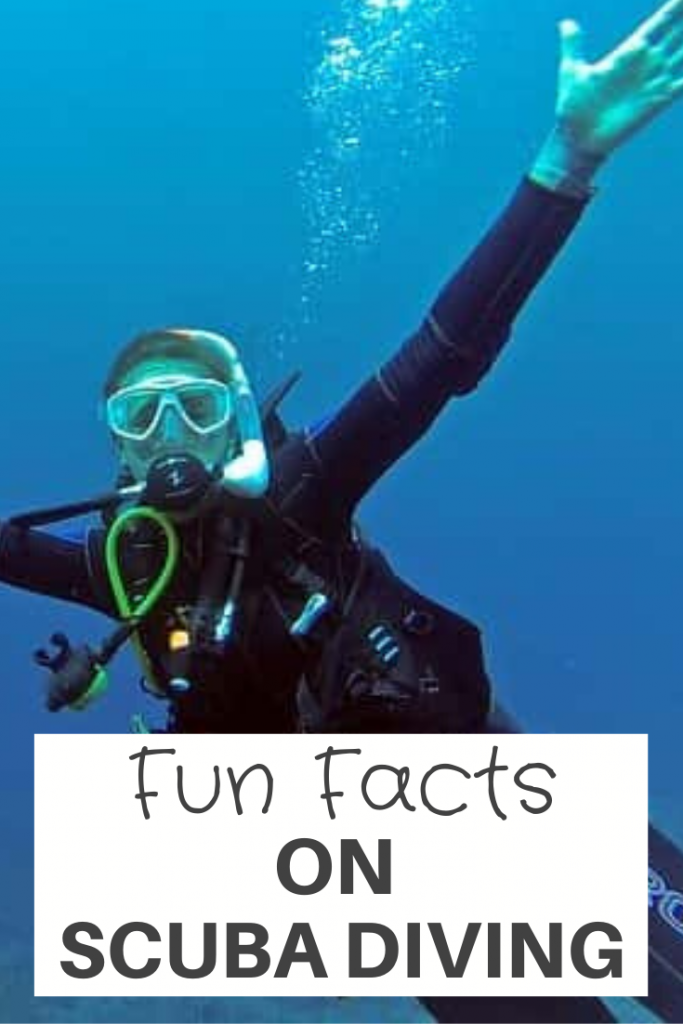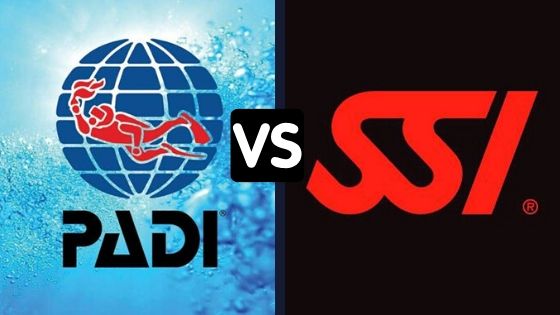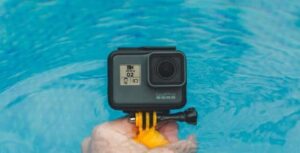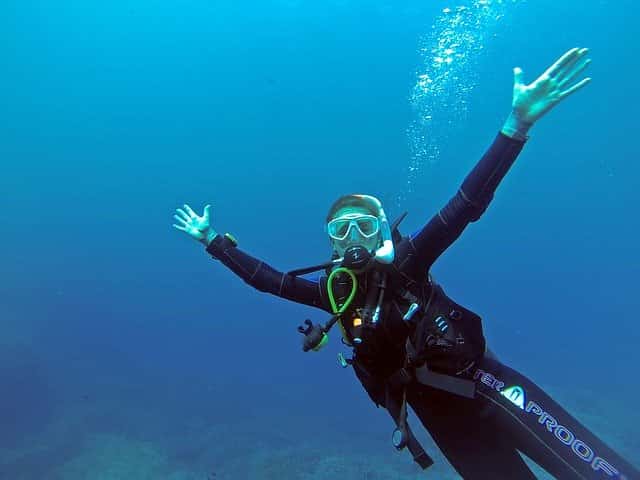
Scuba diving has grown strongly over the last ten years and will continue to grow for the foreseeable future. The main reason for the growth is that scuba diving is a fun activity to do. And you will get to explore the oceans by seeing fish and turtles up close and coral.
Some people have concerns about scuba diving thinking it is a dangerous sport and that it is also an extreme sport. But there are some fun facts about scuba diving that people should know.
In this post, we will go through fun facts on scuba diving and you can go diving with some extra knowledge about scuba diving, so let’s get started!
Read more on common questions asked by divers
Facts On Scuba Diving
It doesn’t matter if you are an experienced scuba diver or a beginner interested in scuba diving. These are fun facts on scuba diving that you may not know about the fascinating underwater activity of scuba diving.
Who Invented Scuba Diving?
In 1943, undersea explorers Jacques-Yves Cousteau and Émile Gagnan co-invented the Aqua-Lung. This was the first successful and safe open-circuit scuba created. A year earlier they co-invented a demand valve regulator set that would supply divers with compressed air.
Jacques-Yves Cousteau is considered the inventor of scuba diving because he created or invented the scuba equipment back in 1943. And as a result, it is commonly recognized that Jacques Cousteau invented scuba diving.
What Does SCUBA Stand For?
Scuba stands for “Self-contained underwater breathing apparatus”.
Who Are The Main Scuba Diving Certification Bodies?
The main job of the scuba diving certification bodies is to give a scuba diver a good level of competence in terms of being able to dive properly, safely, and training to be able to handle a variety of possible challenging situations.
The diver certification is issued by agencies or organizations such as PADI and SSI which provide and manage the diving train material.

Does Air Last Longer The Deeper You Go?
No, the deeper you dive, the more air you will use with every lungful. This is because the pressure increases around you as you go deeper.
As a result, scuba diving regulators provide you with the same pressure as the pressure surrounding you. This means using more air. So, diving shallow means longer the dive.
For a human to breathe normally on land or the surface, we breathe air pressured at roughly around 1 bar.
So, for every 10 meters deeper we go down the pressure surrounding you will increase by about 1 bar. For example, at 20 meters you are surrounded by 3 bars. 1 bar for the air pressure at sea level or surface and 2 bars for diving to 20 meters.
What Is A Regulator?
The regulator is a pressure regulator that controls the pressure of breathing gas for scuba diving. It manages the pressure around by adjusting the air to the pressure of the water around the scuba diver so they can breathe comfortably at any depth.
Why Does Spitting in Dive Mask Prevent Fogging?
If you spit in your dive mask before you dive, this actually prevents the mask from fogging. You could use soap or a detergent that will do the same job.
The spit coats the lens and the layer will be too smooth for the condensed vapor to develop.
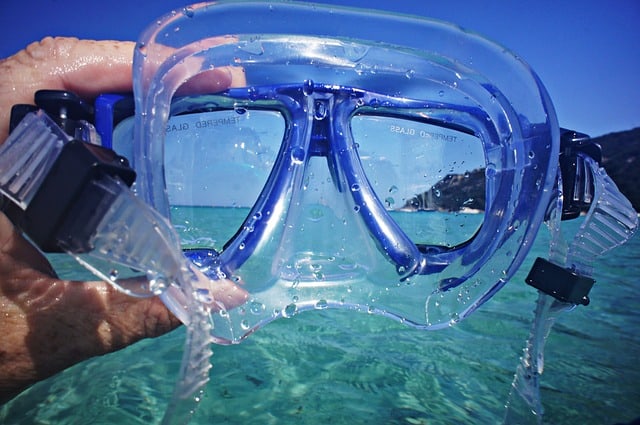
What Is A BCD?
BCD stands for the ‘buoyancy control device’. This enables the diver to float or sink where the diver can add air or remove air by using dump valves or an inflator on their regulator.
What Is The Deepest Recorded Scuba Dive?
In the Guinness book of records, Egyptian Ahmed Gabr is credited with the deepest dive on record for completing a dive down to 332.35m (1.095 ft) in the red sea off the coast of Egypt.
It took 12 minutes to reach his maximum depth and then it took 15 hours to return to the surface. This was due to the number of safety stops he had to make to ensure a safe dive and not run the risk of getting decompression illness.
What Is The Longest Recorded Scuba Dive?
This is credited to Cem Karabaywho set the record for the longest dive that lasted 142 hours, 42 minutes, 42 seconds in July 2016.
It was done in collaboration with the Turkish Republic of Northern Cyprus, in the Turkish Republic of Northern Cyprus Girne Alsancak, between 14-20 July 2016.
Will I Be Able To See As Normal Underwater?
Underwater things will appear 30 percent bigger and 30 percent closer than they actually are. Even after diving to 10 meters, human eyes cannot see the color red or yellow.
Does Oxygen Change Underwater?
Yes, the deeper you dive the pressure increases. With high pressure, oxygen becomes toxic. This is why different gases as used with lower concentrations of oxygen for dives deeper than 42 meters.

What Are The Effects Of Nitrogen Narcosis?
Nitrogen narcosis is the effect of Nitrogen being breathed in at depths of more than 25 meters. This affects all divers. Where a diver can appear and behave slightly drunk, have hallucinations, go unconscious, or can eventually result in death.
How Common Are Shark Attacks?
Worldwide, there are roughly over 70 unprovoked shark attacks are reported. Sharks kill roughly 10 to 12 people each year worldwide.
Read more about why do sharks not attack scuba divers here.
What Is Deep Diving?
PADI defines deep diving as anything from 18 meters to 30 meters as a “deep dive” in the context of recreational diving.
Wrapping Up
Finally, scuba diving has become one of the top recreational activities for many, and as a result, a major industry especially around traveling and diving trips. As long as you use common sense a dive is a safe sport.
And that’s it for now! I’d love to know if this guide on fun facts on scuba divers has helped you. Let me know if you have any questions and let me know if there is more to add.
Did you enjoy this post? Then don’t forget to pin it!
